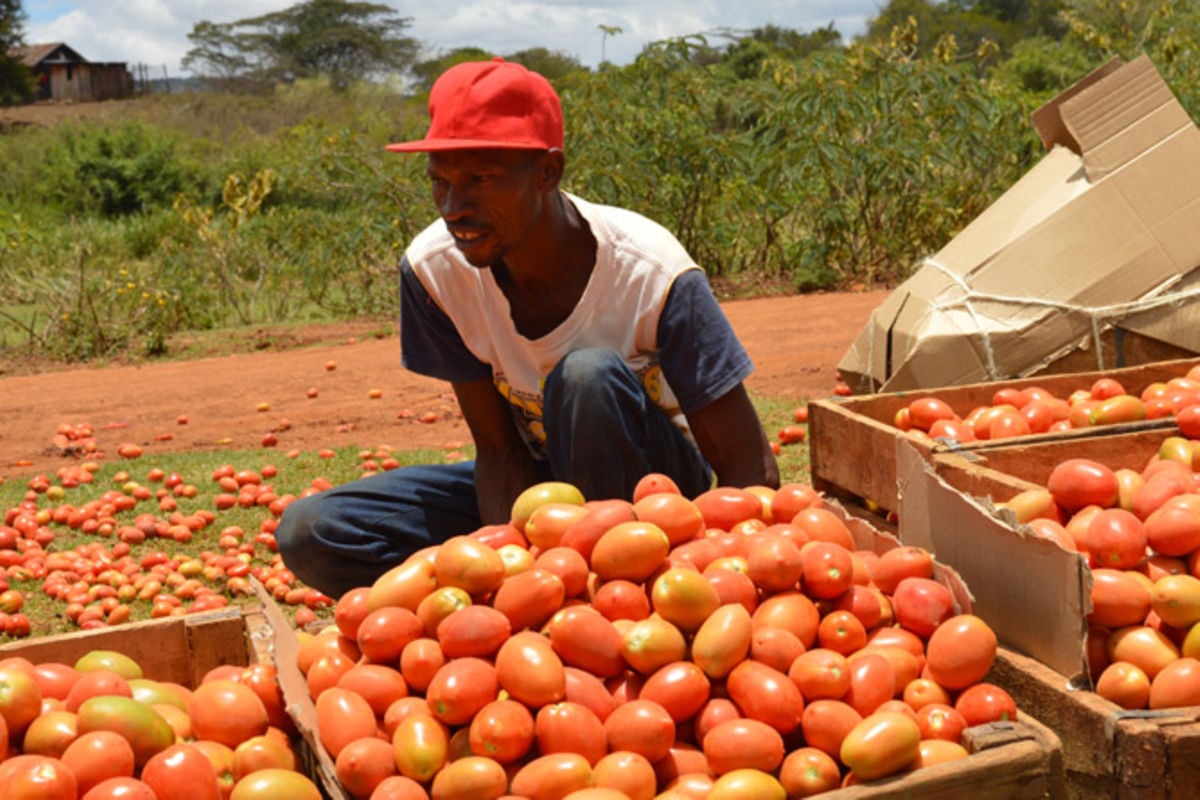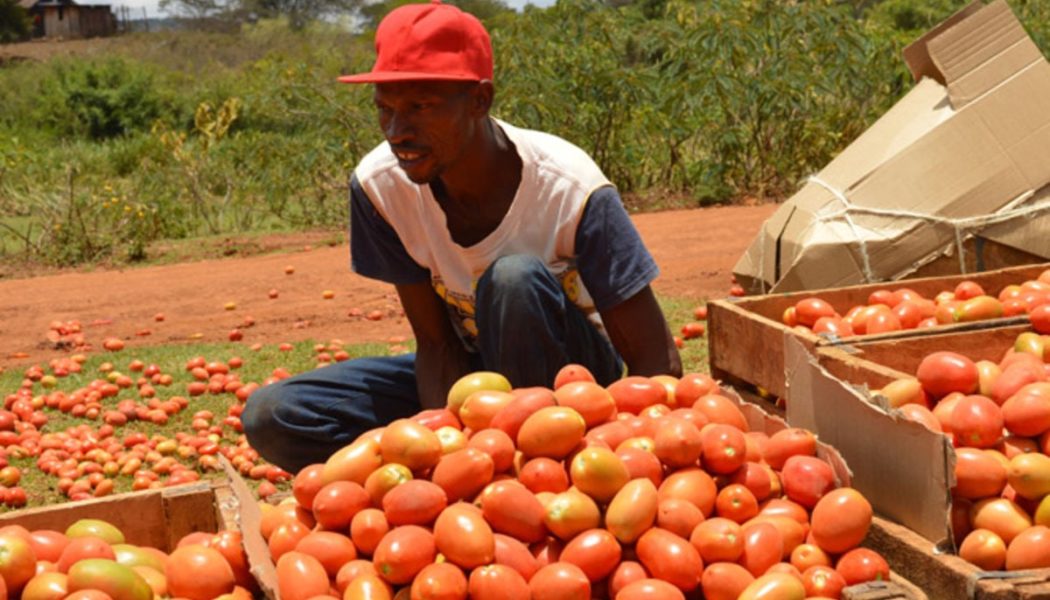
Tomato prices have surged by as much as 50 percent after the heavy rains that Kenya has been receiving since October destroyed the crop, leading to low yields.
A spot check at various vegetable stalls in Nairobi shows the price of a single tomato has increased by up to Sh5 to Sh15 compared to Sh10 months ago, which means that a tomato is now costing nearly as much as an egg, whose prices range from Sh15 to Sh20.
Some of the tomatoes on sale are also of low quality, exhibiting signs of being heavily hit by hail storms and disease.
According to traders, the supply of tomatoes from key producing counties such as Kiambu, Murang’a, and Kirinyaga has declined.
Other top tomato-producing counties are Taita Taveta, Narok, Lamu, Siaya, Kajiado, Machakos, Trans Nzoia, Kitui, Meru, Makueni, Bungoma, Laikipia, Nakuru, Homa Bay, and Bomet, according to the Agriculture and Food Authority.
“The prices of tomatoes have gone up in Gikomba, Marikiti and other markets where we buy them,” said Mary Kabai, a vegetable trader in Roysambu, Nairobi.
Farmers say the heavy rains, which left vast pieces of land submerged in flood water, destroyed the crop.
Farmers who plant the crop in open fields suffered more losses than those who farm tomatoes in greenhouses.
“The rains were very severe and destroyed my tomatoes, which were flowering. We have been forced to increase the price of the little that we harvest,” said John Kagwe, a farmer in Murang’a.
The rains also made some rural roads in the key producing zones impassable, making it harder for the perishable produce to reach the market.
The increase in the cost of tomatoes follows a similar rise in onion prices. Prices of red onions are now averaging Sh200 per kilogramme, double the average cost of Sh100 during a similar period last year, following a shortage in the market after Tanzania restricted exports last year.









